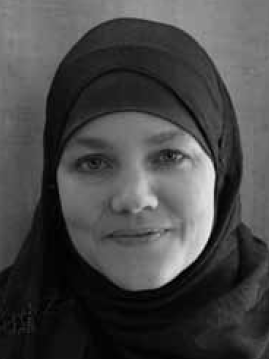The IRR is saddened to hear of the death of our friend and colleague Nina Mühe.
Nina had worked with IRR since 2007. She contributed to our 2008 report Integration, Islamophobia and Civil Rights in Europe and in 2010 co-authored, with me and Naima Bouteldja, the report Alternative Voices of Integration, writing the country reports on Germany and Austria and interviewing the Kanafani Inter-Cultural Initiative in Vienna.
It was in 2007 that I first wrote to Nina after I read her report on Germany published by the Open Society Institute EU Monitoring and Advocacy Programme. Amongst the many insights in Nina’s meticulously researched briefing was an important critique of the role and power of the Verfassungsschutz (German intelligence services) to distinguish between ‘real’ and ‘misguided’ Muslims. Impressed, I sought out Nina so as to include her perspectives in an IRR research project into the Islamophobic turn in the ‘integration debate’ in Austria, Norway, the UK, Germany, the Netherlands and France. We started a correspondence – with an interview conducted for the report, taking the form of an email exchange, with questions and answers, and more questions, flowing back and forth. Her answers, so informative, were written in a very penetrating, but also what seemed to me very Germanic scientific prose style. When Nina visited London to attend an Open Society meeting, and I invited her for lunch at the IRR, and when she telephoned to say she was lost, I was in for a surprise. When I went out to find her, I was met not by the earnest, middle-aged bespectacled professor of my imagination, but a young slight girl in a hijab skipping down the street pulling her battered suitcase behind her. This was the start of a long friendship.
Nina was a cultural anthropologist by training, and it was her studies that led her to convert to Islam. As part of her MA, she spent time in Guinea, West Africa, where she stayed in a village in the home of a Muslim family, with both village and family drawing her to Islam. Once back in Berlin, she devoted herself to Inssan, an organisation set up by young Muslims from different kinds of backgrounds, to form a new kind of mosque and culture centre in the Berlin neighbourhood of Neukölln. Nina continued to work with the Open Society At
Home in Europe project, IRR, and a range of other organisations, while completing her PhD at the Europe-University Viadrina on Islamophobia in German schools. We worked on many campaigns together over the years, most notably that to defend Dr Sabine Schiffer, the director of the Institute for Media Responsibility in Erlangen, against whom a police prosecution for slander had been brought for questioning whether court negligence could have been a contributory factor in the death of Marwa al-Sherbini, a 31-year-old pharmacist from Egypt, who was stabbed to death by a neo-Nazi in a Dresden courtroom. The police officer who brought the action had shot and wounded Marwa’s husband who, in the courtroom chaos, he mistook for the assailant.
The committed and rigorous academic was just one side of her expansive and playful character. In essence, she was an old-fashioned searcher, by which I mean, a person dissatisfied with the modern world and searching for a purposeful existence. Spiritually, she was attracted to Sufism, living in retreat with the Sufis for a period, after the breakdown of her first marriage prompted a need for quiet and reflection. On visits to Germany, we would talk in her little flat in the Berlin forest (Grunewald) well into the night, not just about politics, but love, and how to be a better person. I don’t think I have ever known anyone as open to life as Nina. She died far too early, but left a deep impression behind.

